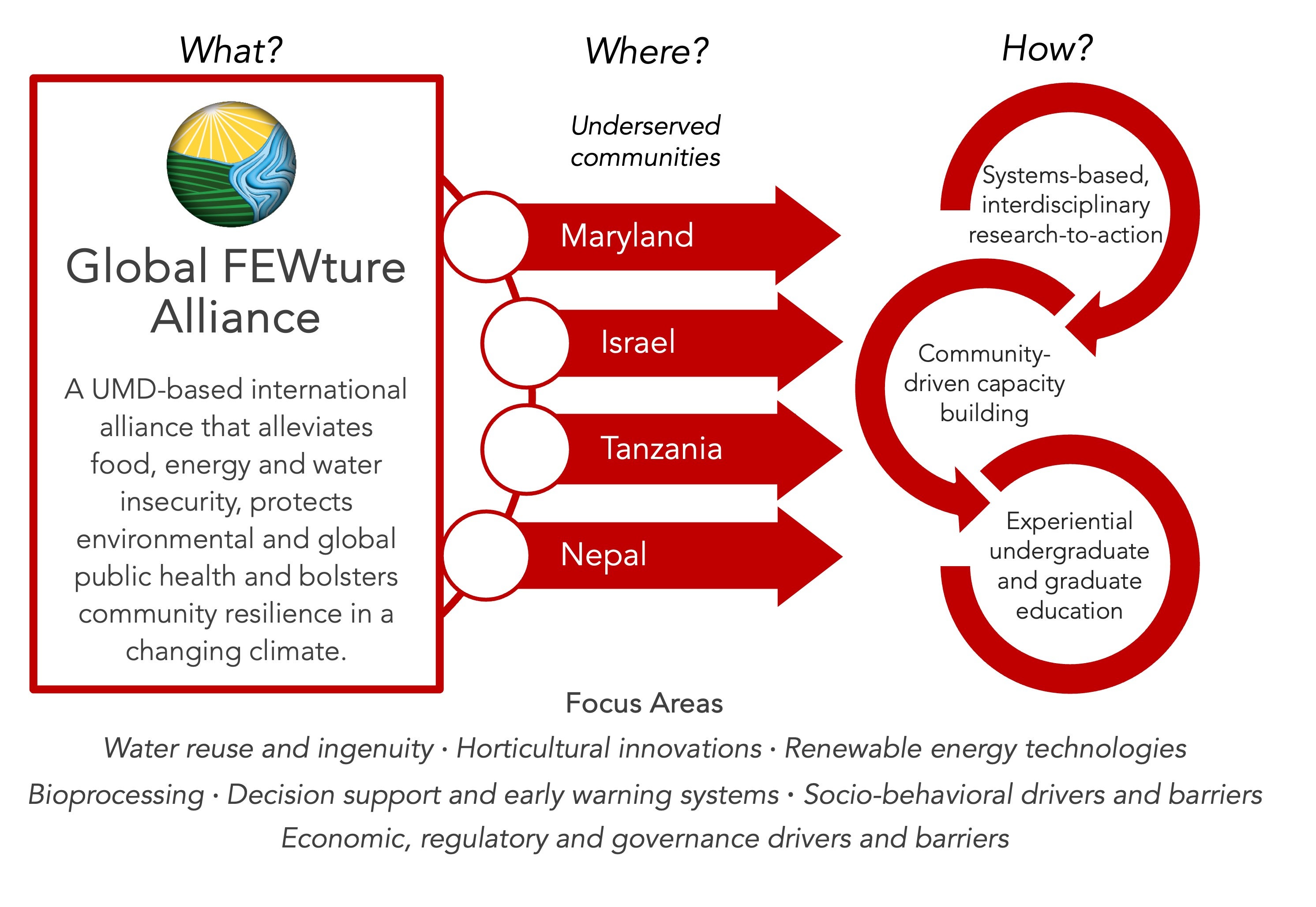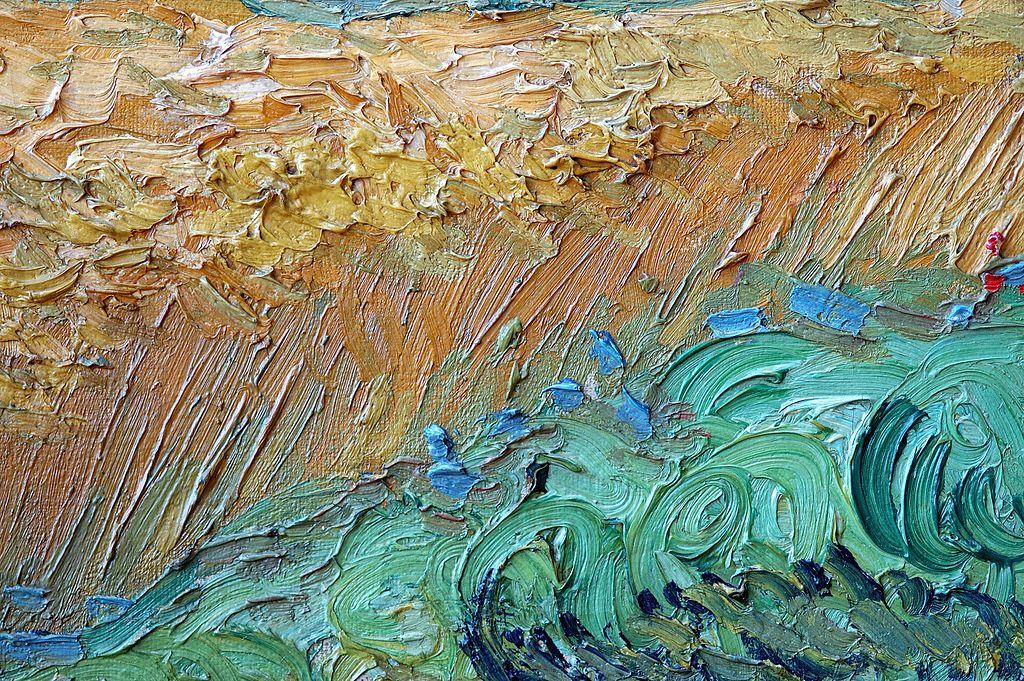Integrated Approach
The Global FEWture Alliance’s interdisciplinary, systems-based approach engages diverse stakeholders, including underserved rural, semi-urban and urban communities, higher education institutions (HEIs) (including undergraduate and graduate students), and government and NGO partners in Maryland, Israel, Nepal, and Tanzania.

Our specific activities at these sites are guided by four integrated objectives:
Objective 1 - Coordination and connectivity: Improve connectivity among UMD units, international partners, and key stakeholders engaged in FEW-related work in order to accelerate and expand our impact.
Objective 2 - Research-to-Action: Carry out systems-based, interdisciplinary research that translates to technology-based and policy solutions at the food-energy-water-climate-health nexus.
Objective 3 - Community-Driven Capacity Building: To leverage the partnerships and knowledge generated through Objectives 1 and 2 to foster community-driven capacity building approaches that result in networks of trained professionals with multi-sectoral knowledge in FEW solutions and increased self-determination among key local stakeholders.
Objective 4 - Experiential Education and Outreach: To translate the knowledge and experience generated through Objectives 1, 2, and 3 into high-quality experiential educational and outreach programs that will teach, train, and inspire the next generation of changemakers at the food-energy-water-climate-health nexus.

UMD students have the opportunity to participate in immersive study abroad experiences with students from other global institutions. Their experience is integrated with the research, capacity building, and outreach activities of our overall Alliance.

